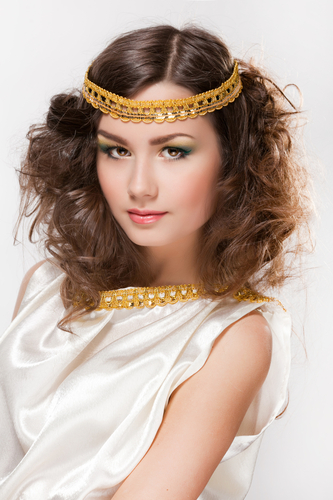
Esthetics is derived from the Greek word aesthetikos, which translates into “perceptible to the senses”. An esthetician is someone who offers skin care services.
During early times, skin care and grooming were practiced less for attractiveness and more for self-preservation. Hunters using esthetics techniques may have used adornment colors in order to blend inconspicuously into their environment, and so forth.
Esthetics can be traced back as early as Greek and Egyptian times, when they used cosmetics for:
- Personal beautification
- Religious ceremonies
- Preparing their deceased for burial
- Reddish hair dye
- Tattooing
- Decorating their fingernails
Culture and Philosophy Traits of Esthetics
Esthetics is a branch of philosophy dealing with the nature of beauty, taste and art, while creating an appreciation of beauty. It can also be identified in scientific terms, as being a study of sensory or sensory emotional values, or more commonly referred to as sentiment, taste, and judgment.
Scholars in the cosmetic field define the industry as a critical reflection of culture, art, and nature. Esthetics is not just for people when it comes to deriving how attractive someone is, and it can be used to describe the beauty of car, home, or even the curves on a woman. This can be either in how you see something’s value, as well as being emotionally driven towards something.
The Egyptian culture when pertaining to beauty was also defined by their attention to cleanliness through proper skin care techniques. Cleopatra is widely known for her skin care regimens and other anti-aging methods, including bathing in sour milk, which by even today’s standards is a favorable skin exfoliation procedure.
Ancient Greeks would bathe in olive oil because it would make their sin more resistant to the sun’s rays, preventing sunburn. And Ancient Romans introduced shaving methods that are still the most common of practices today when it comes to plucking hair and using depilatory creams. Since Rome was in a water-rich environment, they were able to take lots of baths and use soaps not common to other regions, thus allowing them to lather and cleanse their skin on a more regular basis.
Europeans were known for covering their body odors by using perfume, and women in the Middle Ages would bathe in wine so that they could retain their smooth and silky skin.
The “art” of cosmetology and being an esthetician today, when it comes to the beautification of one’s skin, can include performing cosmetic skin care treatments such as:
- Laser hair removal
- Massages
- Body wraps
- Makeup application
- Faradic muscle tone treatments
- Non-surgical face lifts
- Electrolysis
- And so much more…
Fancy Becoming an Esthetician?
Esthetics is a really exciting career. You get to make other people look and feel good about themselves. If you’re interested in helping other people look their best, then this is the career for you. We at Evergreen Beauty School offer esthetics training at our 3 main campuses. Getting started is pretty easy, just contact us today and we will guide you through the application process.






































